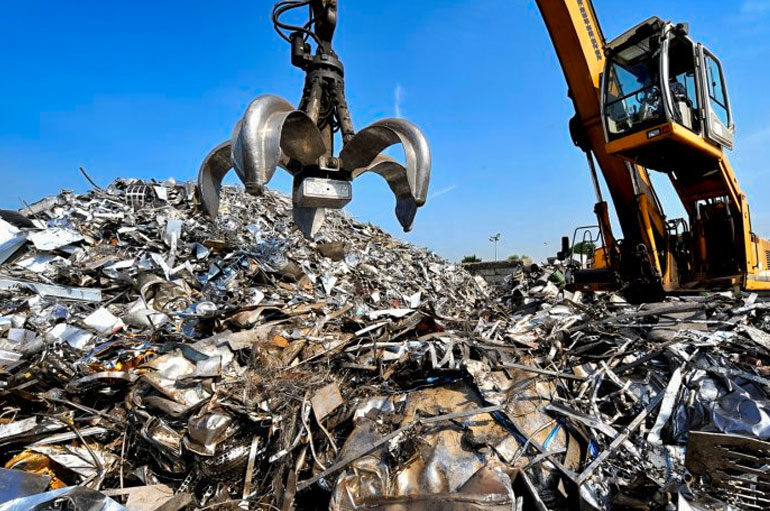

FEB 08, 2023
Metal recycling has become an increasingly important aspect of environmental conservation, and with the rise of the recycling industry, it's essential to know if your metal is recyclable. Determining whether a metal is recyclable depends on several factors, including the type of metal, its source, and any potential contamination. Let’s explore what makes a metal recyclable, what makes a metal not recyclable, and what steps you should take before recycling your metal. We will also touch on the importance of choosing a reputable scrap metal company, such as RCM Recycling, to ensure that your metal is recycled in an environmentally responsible manner.
Metal recycling is an essential aspect of environmental conservation and sustainability, as it conserves natural resources, reduces the demand for mining, and decreases the environmental impact of extracting and refining metals. However, not all metals are recyclable, and certain factors determine whether a metal is recyclable.
The most commonly recycled metals for residential scrap metal recycling include aluminum, copper, brass, and steel. These metals are in high demand and are easily recyclable, as they can be melted down and reused to make new products. Residential metal recyclables typically come from beverage cans, scrap metal, and old appliances.
On the commercial side, there is a broader range of recyclable metals, including aluminum, copper, brass, steel, lead, zinc, and nickel. These metals are typically found in larger quantities in commercial settings and are often processed in industrial facilities. Commercial metal recyclables can come from construction, demolition, electronics, and manufacturing waste.
The recyclability of a metal depends on several factors, including its chemical composition, the purity of the metal, and the presence of any contaminants. For example, aluminum is one of the most recyclable metals, as it can be melted down and reused with little loss of quality or purity. On the other hand, some metals, such as lead and cadmium, are not easily recyclable due to their toxic nature, which requires special handling and processing to ensure safe disposal.
Another important factor that affects the recyclability of a metal is its form. Metals that are clean, dry, and uncontaminated are more easily recyclable than metals that are mixed with other materials or have contaminants present.
Learn the guidelines set by your local recycling center or waste management facility. These guidelines may include restrictions on the type and size of metal items that can be recycled, as well as requirements for separating different types of metals. By following these guidelines, you can help ensure that your metal recyclables are properly processed and reused in an environmentally responsible manner.
Not all metals are recyclable, and certain factors determine if a metal is not recyclable. Understanding these factors can help individuals and businesses avoid wasting resources and potentially damaging the environment by improperly disposing of non-recyclable metals.
Some metals, such as lead and cadmium, are not easily recyclable due to their toxic nature, which requires special handling and processing to ensure safe disposal. Additionally, some metals, such as radioactive materials, cannot be recycled due to their dangers to human health and the environment.
Metals mixed with other materials, such as plastic, rubber, or glass, may not be accepted for recycling due to the difficulty of separating the different materials. This is particularly true for electronic waste, which often contains a mixture of metals and other materials that must be separated before recycling.
Metals contaminated with hazardous materials, such as heavy metals or toxic chemicals, may not be accepted for recycling due to their dangers to human health and the environment. Metals that are not pure or have a low level of metal content may not be accepted for recycling due to the difficulty of processing and the low value of the resulting recycled material.
Before recycling metal, there are several steps that individuals and businesses can take to ensure that the recycling process is as efficient and effective as possible. These steps can also help to reduce the risk of contamination and improve the quality of the recycled metal.
In conclusion, recycling metal is essential to the sustainability and environmental protection. By understanding the factors determining if a metal is recyclable and taking the necessary steps to prepare metal for recycling, individuals, and businesses can help ensure that the recycling process is as efficient and effective as possible. RCM Recycling has the knowledge, expertise, and equipment to recycle many metals, including residential and commercial metals, efficiently.